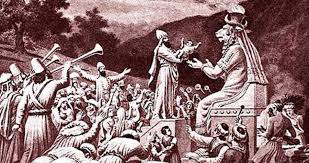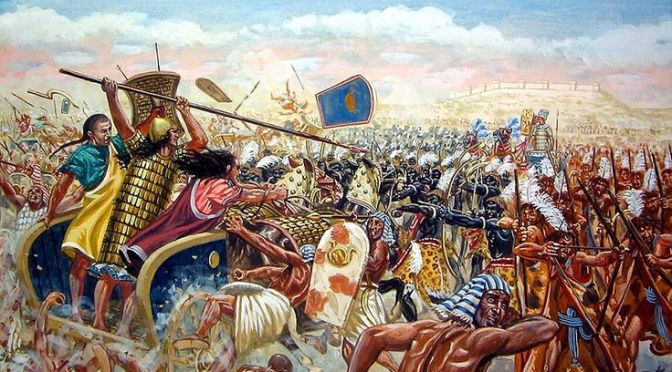The story of Ham and Noah, particularly the incident that led to the curse on Canaan, has been a topic of much debate and interpretation. Understanding what Ham did to Noah that caused such a severe consequence requires a close examination of the biblical text and the cultural and legal context provided by the scriptures. This essay explores the exegetical evidence for Canaan being cursed because of what Ham actually did to Noah, offering insights into the complexities of this biblical narrative.

Genesis 9:20-25 provides the core details of the incident: Noah, after planting a vineyard and becoming drunk, lay uncovered in his tent. Ham, the father of Canaan, saw his father’s nakedness and told his two brothers, Shem and Japheth, who then covered their father without looking at him. When Noah awoke and realized what his youngest son had done, he cursed Canaan, declaring that he would be a servant to his brothers. The initial question arising from this passage is: what does it mean that Ham “saw the nakedness of his father”?
There are primarily two interpretations of what Ham did. The first suggests that Ham saw Noah in a compromised state and mocked him, failing to show the respect due to his father. In this view, Ham’s sin was one of disrespect and derision, and the curse on Canaan is seen as a severe response to this disrespect. However, this interpretation raises the question: why was Canaan cursed for Ham’s sin?

The second interpretation delves deeper into the phrase “saw the nakedness of his father.” According to Leviticus 18:7-8 and Leviticus 20:11, uncovering a father’s nakedness is a euphemism for having sexual relations with the father’s wife. This interpretation is supported by the consistent use of the term “nakedness” in Levitical laws to describe illicit sexual acts. Therefore, the exegetical evidence for Canaan being cursed because of what Ham actually did to Noah includes the possibility that Ham committed an act of incest with Noah’s wife, his own mother.

If this second interpretation is correct, Canaan’s curse can be understood as a consequence of the incestuous act, making Canaan the product of this sin. The curse on Canaan, then, is not merely punitive but also prophetic, reflecting the moral corruption that would characterize the Canaanites, his descendants. The Canaanites, as described later in Levitical laws, engaged in similar sexual immorality, indicating a continuity of sin from their ancestor.

Moreover, Moses, the author of Genesis, uses the term “nakedness” carefully to maintain the dignity of Noah while subtly indicating the gravity of Ham’s sin. This careful use of language requires readers to interpret Genesis 9 in light of later biblical texts, thereby uncovering the deeper implications of Ham’s actions.
The curse on Canaan and the subsequent behavior of his descendants highlight a broader biblical theme: the generational impact of sin. The Canaanites’ continued immorality and idolatry, which eventually led to their dispossession by the Israelites (descendants of Shem), fulfill Noah’s prophetic curse. This narrative underscores the enduring consequences of Ham’s sin, reflected in the moral decay of his lineage.

In conclusion, the exegetical evidence for Canaan being cursed because of what Ham actually did to Noah is rooted in a comprehensive understanding of biblical language and cultural context. Whether viewed as an act of disrespect or a more grievous sin of incest, Ham’s actions had profound implications, leading to the curse on Canaan. This curse not only reflects the immediate consequences of Ham’s sin but also serves as a prophetic declaration of the moral and spiritual decline of Canaan’s descendants. By examining the text through these lenses, we gain a deeper appreciation for the complexities of this biblical story and its enduring theological significance.
Return from “Exegetical Evidence For Canaan Being Cursed Because Of What Ham ACTUALLY Did To Noah” to “Exegetical Evidence For The Bible”